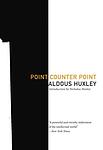The Greatest "Fiction, Intellectual life" Books of All Time
Click to learn how this list is calculated.
This list represents a comprehensive and trusted collection of the greatest books. Developed through a specialized algorithm, it brings together 300 'best of' book lists to form a definitive guide to the world's most acclaimed books. For those interested in how these books are chosen, additional details can be found on the rankings page.
Genres
The category of "Intellectual life" encompasses books that explore the world of ideas, knowledge, and critical thinking. These books delve into topics such as philosophy, science, history, politics, and culture, providing readers with a deeper understanding of the complexities of the world around them. They challenge readers to think critically, question assumptions, and engage in meaningful discussions about the issues that shape our lives. Whether exploring the latest scientific discoveries or examining the great works of literature, books in this category offer readers a rich and rewarding intellectual experience.
Countries
Date Range
Reading Statistics
Click the button below to see how many of these books you've read!
Download
If you're interested in downloading this list as a CSV file for use in a spreadsheet application, you can easily do so by clicking the button below. Please note that to ensure a manageable file size and faster download, the CSV will include details for only the first 500 books.
Download-
1. Madame Bovary by Gustave Flaubert
Madame Bovary is a tragic novel about a young woman, Emma Bovary, who is married to a dull, but kind-hearted doctor. Dissatisfied with her life, she embarks on a series of extramarital affairs and indulges in a luxurious lifestyle in an attempt to escape the banalities and emptiness of provincial life. Her desire for passion and excitement leads her down a path of financial ruin and despair, ultimately resulting in a tragic end.
-
2. Berlin Alexanderplatz by Alfred Döblin
Set in 1920s Berlin, the book follows the life of Franz Biberkopf, a man recently released from prison who is trying to make an honest life for himself. However, he is drawn back into the criminal underworld due to circumstances and the influence of his acquaintance, Reinhold. The book is a vivid portrayal of city life in Weimar-era Germany, exploring themes of poverty, crime, redemption and the struggle to maintain one's morality amidst chaos and corruption.
-
3. The Mandarins by Simone de Beauvoir
"The Mandarins" is a novel that explores the personal and political lives of a group of intellectuals in post-World War II France. The narrative delves into their struggles with ethical dilemmas, political ideologies, and personal relationships in a rapidly changing world. The book is known for its exploration of existentialism and feminism, providing a vivid portrayal of the human condition and the complexities of freedom.
-
4. Utopia by Thomas More
This book is a fictional work that presents a detailed description of an ideal society on an imaginary island located in the Atlantic Ocean. The narrative is presented as a dialogue between the author's character and a traveler who has visited the island. The society described is devoid of private property, with citizens living in communal dwellings, and it promotes education, religious tolerance, and a welfare state. The book explores political, social, and religious customs, providing a critique of European society and offering an alternative model of social organization.
-
5. Point Counter Point by Aldous Huxley
"Point Counter Point" is a satirical novel that explores the dilemmas of a group of intellectuals living in 1920s London. The narrative delves into their personal lives, affairs, and philosophical debates, presenting a vivid portrait of post-World War I society. The characters' diverse viewpoints on science, art, religion, and politics reflect the cultural and ideological conflicts of the time, with the author skillfully interweaving their stories to create a complex, multi-layered narrative. The novel is notable for its experimental structure, which mirrors the form of a musical counterpoint, with multiple plot lines unfolding simultaneously.
Reading Statistics
Click the button below to see how many of these books you've read!
Download
If you're interested in downloading this list as a CSV file for use in a spreadsheet application, you can easily do so by clicking the button below. Please note that to ensure a manageable file size and faster download, the CSV will include details for only the first 500 books.
Download



